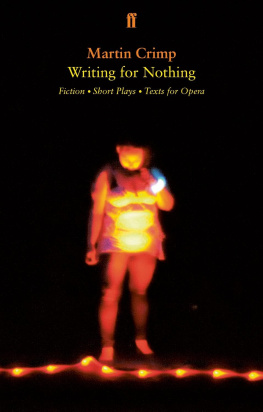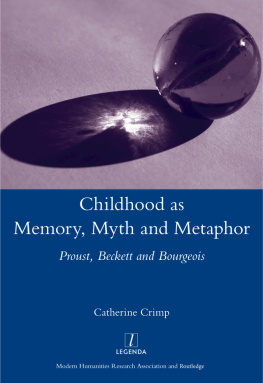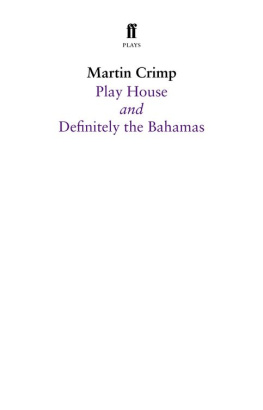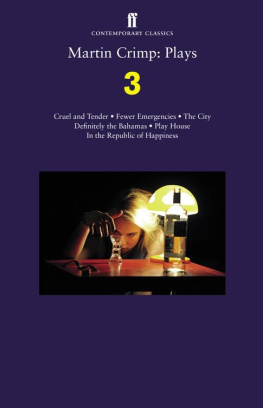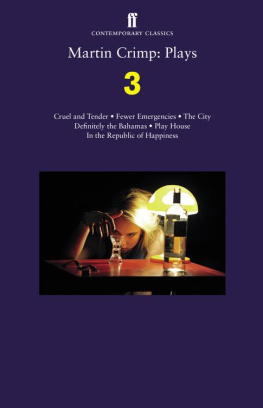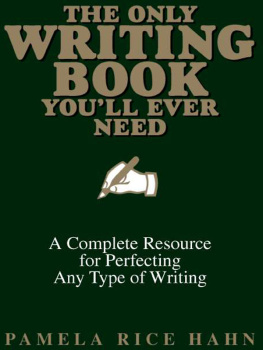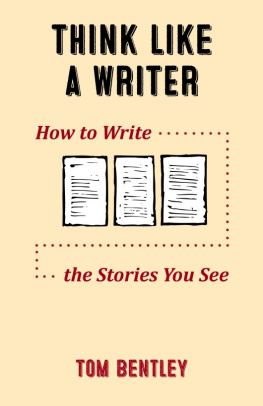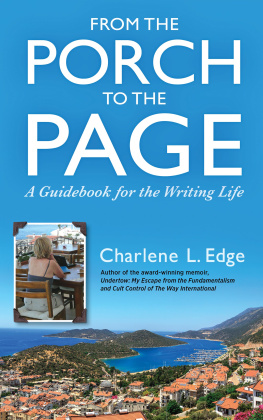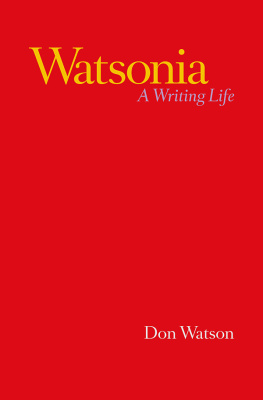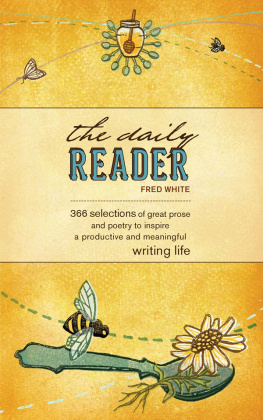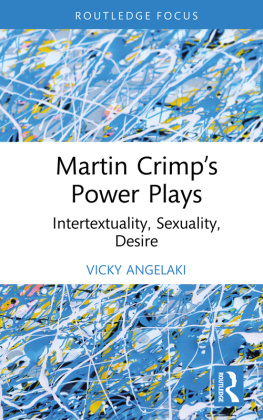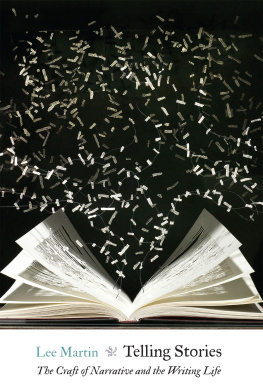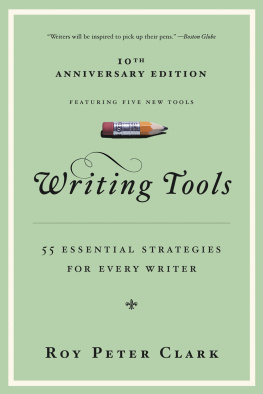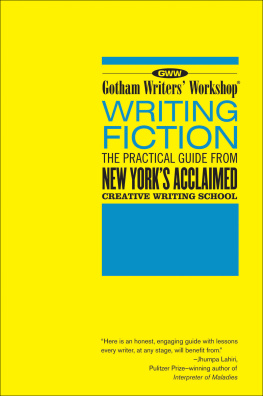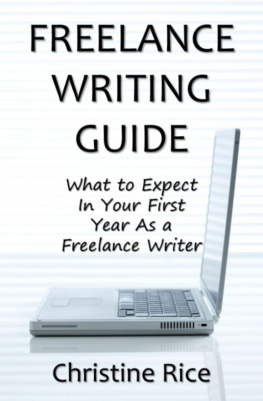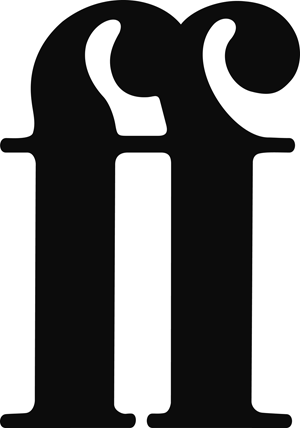How glorious it would be to begin your introduction in this way! To raise the spectre of this ideal artistic non-instrumental nothing pitch up in your first paragraph like Noah in his ark on Ararat, the irritating mass of humanity conveniently destroyed, and, while the dove goes flapping off looking for plant life, seize the moral high ground! Not so: these short texts are as grubby as all writing whether fiction, plays, or designed for opera. Most have been paid for, only a few have not. Some, it has to be said, verge on the exquisite especially when set in the gleaming armature of music.
Others, lets admit it, have all the allure of body-parts. But seriously now is there not some hope the writer may, well once in a while at least, still write for the ideal nothing? that he or she might once in a while at least remember that first pure impulse? fall back in love with what he or she makes, just like the sculptor in the fable, and if I might put it this way head once again no place for no reason other than the word? MC
November 2018
When I heard the play read, it turned my stomach, but later that night I couldnt stop thinking about it. The writer was a little bitch, that much was obvious. Im sick to the teeth of people who make their work so personal and you could see it all there in the play these characters were people she knew the businessman who unzips his trousers and forces that girls head down was clearly her own father you dont need to be a psychologist to work that out. And if you want my opinion the girl is her, down on her knees, down on her knees with tears in her eyes. Okay, we know these things happen, but is this really what we want to see in the theatre? particularly when you bear in mind that over the next sixty or ninety minutes or whatever things degenerate to the point where I would draw the line at describing them.
People these days think that any kind of personal sickness or private abuse entitles them to be an artist, they think that art is simply a transcription of what theyve suffered not only that, but their own suffering completely fills the frame. If a woman has been raped by her father, if a young man has had a bad experience in prison, or at the hands of the police, then they think they have the right to reconstruct the world (and what is a play if not the rebuilding of the world?) around this event. Politics and history are made invisible. What we see on stage essentially are people of either sex being fucked up the arse. And while this happens I always notice a strange silence in the audience a terrible gravity. After the reading theres a similar silence, then a little applause.
The actors close their scripts, take their coats off writing in prose the backs of the chairs, drink from water-bottles, check for messages. Its not a public reading, but one held behind closed doors, allegedly for the benefit of the writer, but in reality to give the theatre management a chance to assess a script theyre undecided about. This is why despite the superficial informality of these events cups on the floor, smiles between friends the atmosphere afterwards is always slightly tense, fraught with judgement. Outside in the corridor the Director asks for my opinion. I think it needs more work. More work? I think its trying too hard to shock the audience.
What about the language? Its confused. One moment its brutal, the next its romantic. Isnt that what makes it exciting? Produce the play as it is and youll be taking an enormous risk. Were here to take enormous risks, says the Director, a little artificially, as the focus of his eyes adjusts so that hes looking over my shoulder. He takes hold of my arm and lowers his voice: I respect your doubts, he says, but the fact is is were going to do this play. Without making changes? Its a brilliant piece.
I think youre making a mistake. Our conversation stops completely at this point because the writer has appeared beside us. The Director takes her arm exactly as he took mine except hers, as a special mark of favour, he strokes a few times, close to the shoulder. Ive always found the instant physical intimacy of the theatre repellent which isnt to say I havent occasionally benefited from it. Well done, he says, stroking her arm. I think its a wonderful piece.
Shocking of course, but what I hadnt realised when I first read it was just how beautiful and redeeming it is. Its not meant to be beautiful, she says with a smile, its meant to be ugly. In that case, I say, youve clearly succeeded. When she looks at me, theres an appalling clarity in her eyes. Somethings burning there, just as there was something burning in the play. Where does this self-confidence come from? Normally if a young writer was discussing with the Director and myself the reading of their first play, shed be looking for reassurance and advice.
Wed feel a gratifying sense of responsibility and power. But in her case its different. Were the ones being judged by this quiet burning arrogance or at least thats what she wants us to feel. And all this does is confirm my suspicion and she can stare as much as she likes, her eyes can burn and burn because all this does is confirm my original suspicion that she is not a writer at all. This play of hers which is like a living body being slowly stripped of its skin simply represents a public act of self-mutilation. How dyou mean, she says, succeeded? In being ugly.
It seems to me that despite what Nicky says no one is redeemed. Your characters live in hell. Is that a compliment? On the contrary: Im afraid its a criticism. Once you reach hell, no change is possible. And if no change is possible, theres no drama. She grins. No. No.
You obviously dont live in hell then. Ive no wish to. Because I do and theres plenty of fucking drama, believe me. The Director laughs and strokes her arm. She lights a cigarette. Plenty.
Im always surprised that the cigarette delivered by the slick machinery of capitalism: produced by the cheapest possible labour, sold at the highest possible price to the most vulnerable consumer can still be worn like this as a badge of rebellion. But when she holds out the pack a strange gesture when Ive been so deliberately hostile I cant resist taking one. I bend towards the flame she offers me, feeling like a badly written character, not sure of my intentions. That night I had a dream. You could call it erotic, except that word suggests pleasure, and there was none. I was shut in the dark in a shallow cupboard behind a wall.
I could hear a bird flapping its wings, knocking itself against the door. The person I was with was a typical dream-person: very clear in the dream, but in reality impossible to identify. The bird went on scraping and struggling: its beak struck sparks against the surface of the door, which made me realise it must be made of metal, steel perhaps. I woke up and was relieved to see a faint frame of light around the closed curtain. It was five oclock. I found Madeleine in the kitchen.

